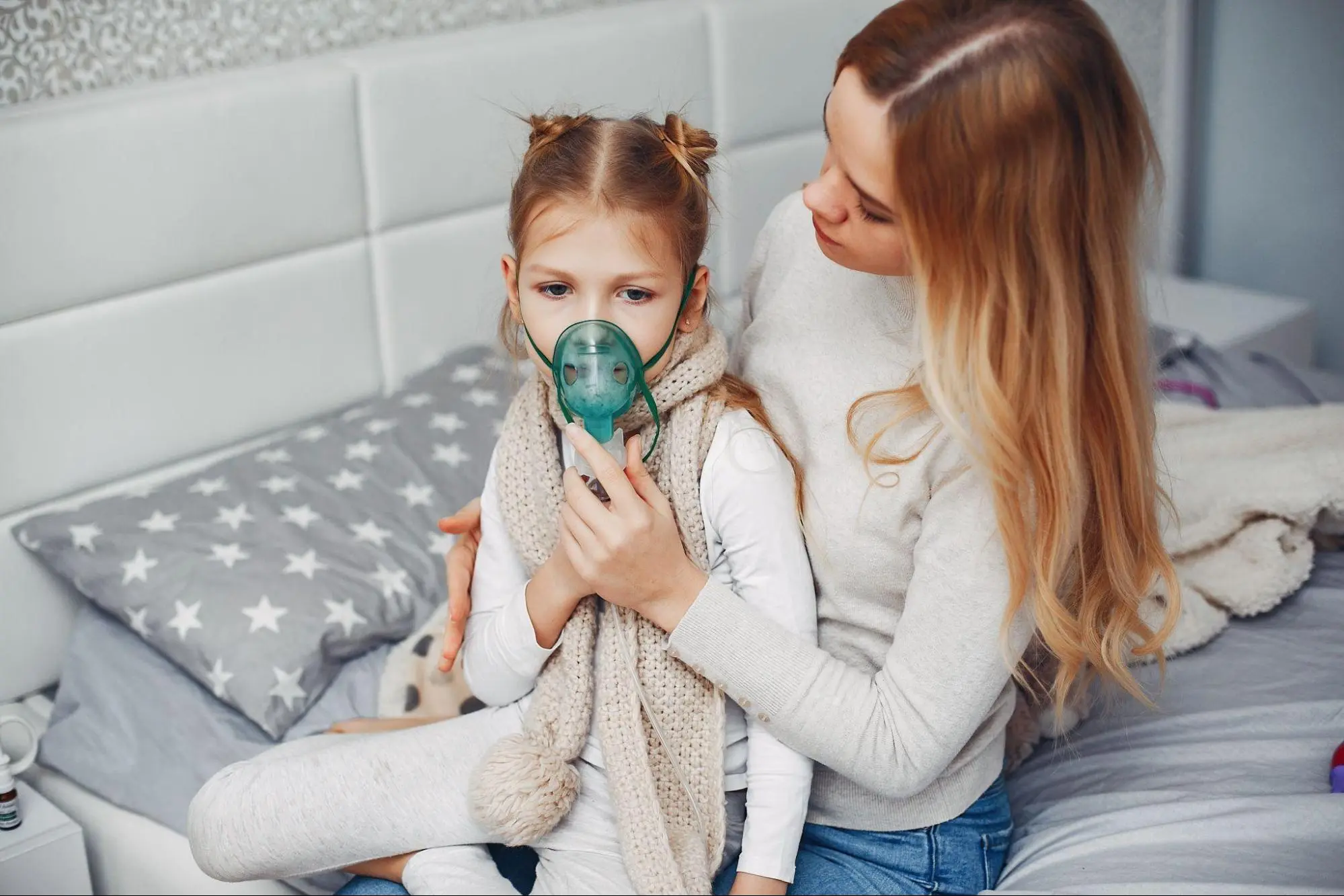Acute Respiratory Infections (ARIs) are common health issues that often affect children. ARIs encompass various respiratory illnesses such as the common cold, flu, bronchitis, and pneumonia. Because children's immune systems are still developing, they are more vulnerable to respiratory infections. Therefore, it's essential for parents and guardians to take preventive and anticipatory measures to protect children from ARIs. This article will discuss various tips and actions to help you prevent and manage ARIs in children.
1. Symptoms of ARIs
ARIs are a category of diseases that include various respiratory illnesses caused by viral or bacterial infections. Some examples of ARIs include influenza (flu), the common cold, bronchitis, and pneumonia. ARI symptoms can range from mild to severe, depending on the type of infection and the child's overall health. Some common ARI symptoms in children include:
1.1 Cough and Runny Nose
These symptoms often serve as early signs of ARIs. Your child may have a stuffy nose, sneezing, and a mild cough. Coughing and a runny nose are the body's way of expelling viruses or bacteria from the respiratory system.
1.2 Fever
An increase in body temperature is the body's natural response to combat infection. Your child may experience a fever when they have an ARI. Fever is an indication that the immune system is actively fighting the infection.
Also Read: Is it True You Should Drink 8 Liters of Water? Here Are the Facts
1.3 Sore Throat
ARIs can also lead to a sore throat, making it uncomfortable for children to swallow. A sore throat is a sign of inflammation in the throat and is usually caused by a viral infection.
1.4 Difficulty Breathing
Some types of ARIs, such as bronchitis or pneumonia, can cause breathing difficulties. This often requires immediate medical attention. Difficulty breathing can be a severe symptom that necessitates hospital care.
1.5 Chest Pain
In more serious cases, your child may experience chest pain due to inflammation in the respiratory passages. Chest pain is a symptom that requires medical attention and appropriate treatment.
1.6 Loss of Appetite
During an ARI, your child may lose their appetite, which can affect their nutrition. Loss of appetite is a natural response to infection and can hinder your child's recovery.
1.7 Fatigue and Weakness
ARIs often leave children feeling weak and fatigued, which can impact their daily activities. Fatigue is the body's way of signaling the need for rest and recovery.
ARI symptoms can be highly disruptive and uncomfortable for children. Some types of ARIs, particularly pneumonia, can be severe and require intensive medical care. Therefore, prevention and anticipation are key to protecting children from these illnesses. Through proper preventive actions, you can help reduce the risk of ARIs in your children and ensure their health and happiness.
2. Tips for Anticipating ARIs in Children
2.1 Vaccination
Vaccination is one of the primary preventive measures against ARIs. Several respiratory diseases, such as influenza (flu), can be prevented through vaccination. Ensure that your child receives the vaccinations recommended by the local healthcare authorities or their pediatrician. Vaccination helps protect children from these diseases and reduces the risk of severe ARIs.
2.2 Proper Handwashing
One of the main methods of respiratory disease transmission is through contact with contaminated hands. Children often touch their faces, noses, and mouths unconsciously, so it's crucial to teach them how to wash their hands properly. Make sure they wash their hands after playing outdoors, before meals, and after coughing or sneezing. Use soap and warm water, and instruct them to wash all hand surfaces for at least 20 seconds. If water and soap are not available, you can use alcohol-based hand sanitizer.
Also Read: Going Through a Heartbreak? Here's What You Should Do to Avoid Sinking into Sadness
2.3 Practice Good Cough and Sneeze Etiquette
Teach your child good cough and sneeze etiquette, which involves covering their mouth and nose with their elbow when coughing or sneezing. This helps prevent the spread of germs into the air and onto surfaces. Additionally, instruct them always to use a tissue when coughing or sneezing and to dispose of used tissues in a waste bin. If they don't have a tissue, they can use the inside of their elbow as a temporary cover.
2.4 Avoid Close Contact with Sick Individuals
Limit your child's contact with sick individuals, especially if they exhibit ARI symptoms. Avoid sharing personal items such as utensils or glasses with someone who is ill. It's essential to maintain physical distancing when interacting with people outside the family who may be infected.
2.5 Maintain a Clean Environment
A clean and hygienic home helps prevent the spread of germs and ARI viruses. Ensure that you regularly clean frequently touched surfaces like doorknobs, door handles, and children's toys. Properly ventilate the rooms to ensure fresh air circulation and reduce the transmission of viruses.
2.6 Balanced Nutrition
Proper nutrition is vital to maintain a child's immune system. Ensure your child receives a balanced diet, including vegetables, fruits, sources of protein, and foods rich in essential vitamins and minerals. Also, make sure they drink enough water to stay hydrated.
2.7 Physical Activity
Regular physical activity helps strengthen a child's immune system. Encourage them to play outdoors, ride a bike, or engage in other physical activities. Physical activity also helps children sleep more soundly, which is crucial for their health.
2.8 Healthy Air Quality
Maintain a clean and healthy indoor environment. Avoid smoking inside the house and ensure proper ventilation. Use a humidifier if the air is too dry or an air purifier if your child has respiratory issues.
2.9 Don't Keep Children Out of School for Too Long
While you want to protect your child from ARIs, avoid keeping them out of school for extended periods. School is where children learn, interact, and build their immune systems. If your child is sick, allow them to rest at home, but make sure they return to school once they've recovered.
Also Read: Dear Moms, Don't Let Your Children Become Victims! Here's How to Manage Stress for You
2.10 Consult a Doctor
If your child experiences severe ARI symptoms, such as difficulty breathing or high fever that doesn't respond to fever-reducing medications, consult a doctor immediately. Early diagnosis and proper treatment are crucial for managing ARIs.
In addition to following the above tips for anticipating ARIs, it's essential for parents to educate children about these diseases. Children who understand how ARIs spread and why preventive measures are vital are more likely to practice good hygiene and preventive actions. Explain to them why washing their hands, avoiding contact with sick individuals, and practicing good cough and sneeze etiquette help prevent infection.
Furthermore, monitor the progression of ARI symptoms in your child. If their symptoms worsen or do not improve after a few days, consult a doctor promptly. Early diagnosis and appropriate treatment are essential for addressing ARIs.
ARIs are common health problems in children, but preventive measures can help protect them from these illnesses. By following the tips above, you can reduce the risk of ARIs in your children. Moreover, it's crucial to set an example of healthy behavior and explain the importance of personal hygiene to your children. With proper preventive actions, you can help your children stay healthy and happy throughout the year.
BFI Finance is a company that provides multi-purpose loans with guarantees for motorbike bpkb, car bpkb, and house or shophouse certificates







